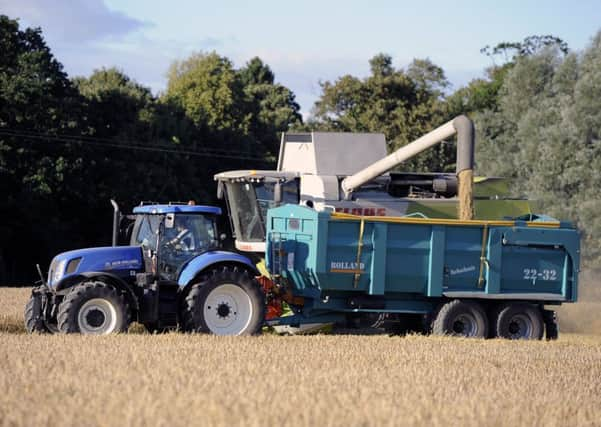Tenant farmers warned that amnesty clock is ticking
This article contains affiliate links. We may earn a small commission on items purchased through this article, but that does not affect our editorial judgement.


With the first round of “use it or lose it” meetings on the amnesty, organised by the Scottish Government through the Farm Advisory Service, being oversubscribed at virtually every venue, interest in the issue has been running high.
But the key message on this complex topic was simple – while the task of identifying improvements which had not been formally notified to landlords and tracking down supporting evidence might seem daunting, the sooner the process was begun the better.
• READ MORE: Farming news
Advertisement
Hide AdAdvertisement
Hide AdAnd the meetings heard that while the onus for initiating discussions on the issue would generally lie with the tenant, there was little point in standing back and waiting to follow on the coat-tails of others.
“While each farm will have its own unique set of circumstances, all the major organisations have signed up to the amnesty and tenants should have nothing to fear by approaching their landlords to take the opportunity to draw up a definitive list of who paid for what,” Dr Bob McIntosh, the recently appointed Tenant Farming Commissioner, told the meetings.
He said that the code of practice which he had drawn up in association with the main players in the industry set out the manner in which the discussions should be conducted.
“But if you are able to sit down around the kitchen table and reach an agreement which is acceptable to all parties, then that is the best way forward,” said McIntosh.
• READ MORE: New code launched as farming tenant amnesty opens
Admitting that new legislation was likely to contain a number of grey areas and the possibility of differing interpretations, he said that if particular issues arose, he would be willing to go to the Land Court to get the required legal rulings.
He added: “But it has to be said that while I will do my best to address issues which could be defused before they become a major problem, the Land Court has indicated that while it won’t mind seeing me occasionally on such points, it can’t be expected to work this way on every issue.”
He also said that he was happy to act as a middleman if difficult situations arose in negotiations – but stressed that he was not a free mediation service, an arbiter of what was right and wrong or the font of all wisdom on legal issues.
Advertisement
Hide AdAdvertisement
Hide AdLegal specialist Hamish Lean told the meetings that while it was important to get as much detail as possible on who had carried out improvements, the amnesty was not the time for putting a value on this – as this would only be discussed at way-leave – and the aim was to identify what would qualify for compensation if a tenancy came to an end.
Consultant Martin Hall said that while reaching mutual agreement on improvements was the best way forward, it was crucial that this was also agreed by both parties in writing.
Controversial ‘Making Tax Digital’ scheme further delayed
The UK government’s “Making Tax Digital” initiative has been diluted and delayed – and could be on the shelf for a further couple of years, it has been confirmed.
And while the farming industry might have allowed itself a collective sigh of relief when the controversial proposals were dropped from the Finance Bill earlier in the year, this week’s announcement that it would have an even greater breathing space was positively welcomed.
Some uncertainty does still hang over the long term future of the plans to make quarterly, online tax returns mandatory – which were initially to have been imposed on the vast majority of farming businesses from next April.
The measures, which had been termed “ill-considered and ill-suited to the farming industry”, are still likely to go ahead, according to NFUS finance director Colin Gordon, but on a different timescale.
• READ MORE: Taxing problems persist for rural online returns
Advertisement
Hide AdAdvertisement
Hide AdGordon said that initially they would only cover VAT from April 2019 in the government’s revised roadmap – with other taxes delayed until at least April 2020, meaning digital tax records do not have to be kept until at least April 2020.
“Those above the VAT threshold (annual turnover of over £85,000) will still have to report these returns quarterly online from April 2019, so that no business will need to provide information to HMRC more frequently than they do now,” said Gordon.
He said that NFU Scotland had argued with the Treasury select committee that the original timetable was “rushed and unworkable”, adding that the Treasury said it had “listened to concerns raised by parliamentarians, in particular the Treasury select committee, businesses and professional bodies about the pace of change”.